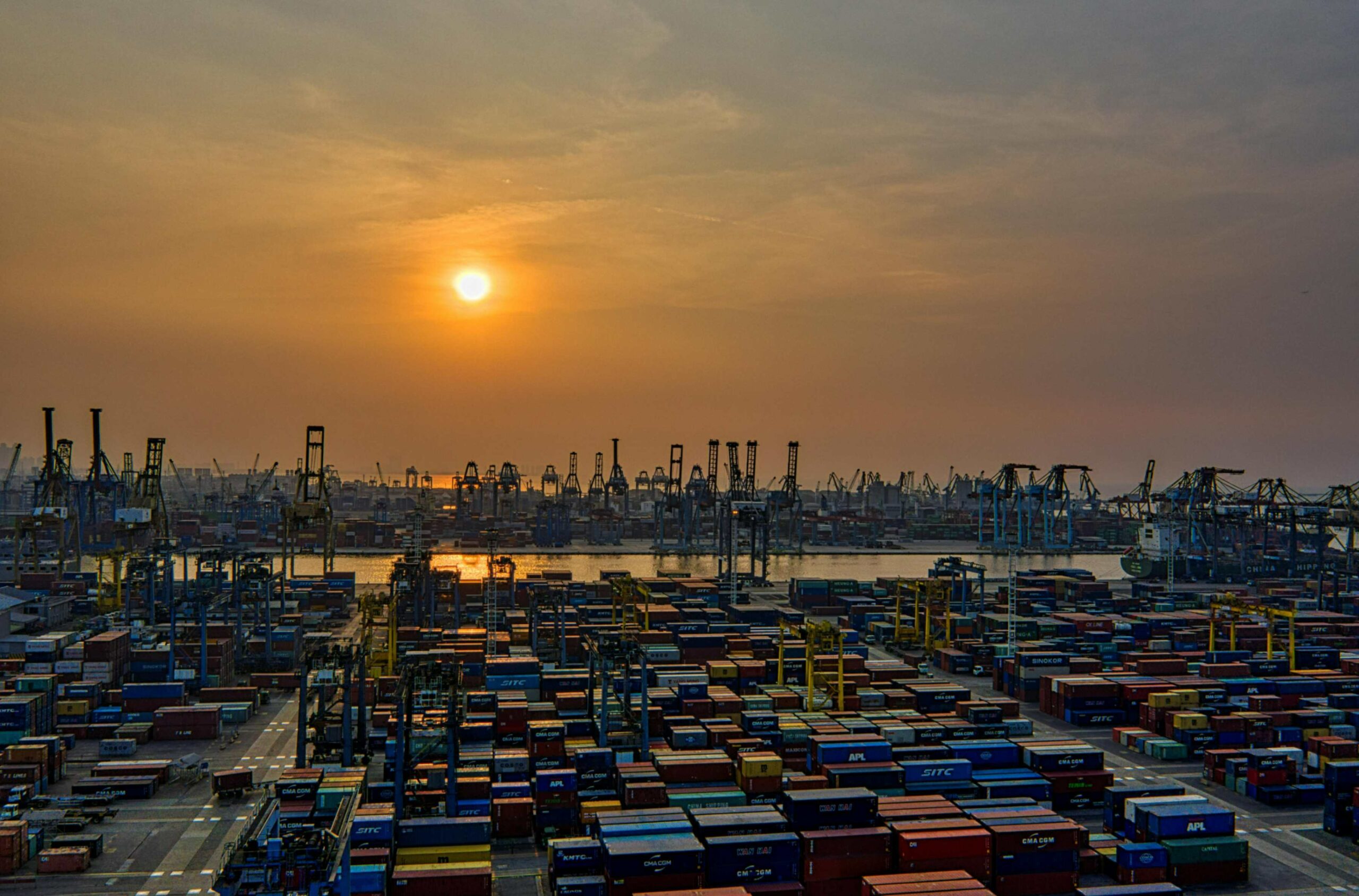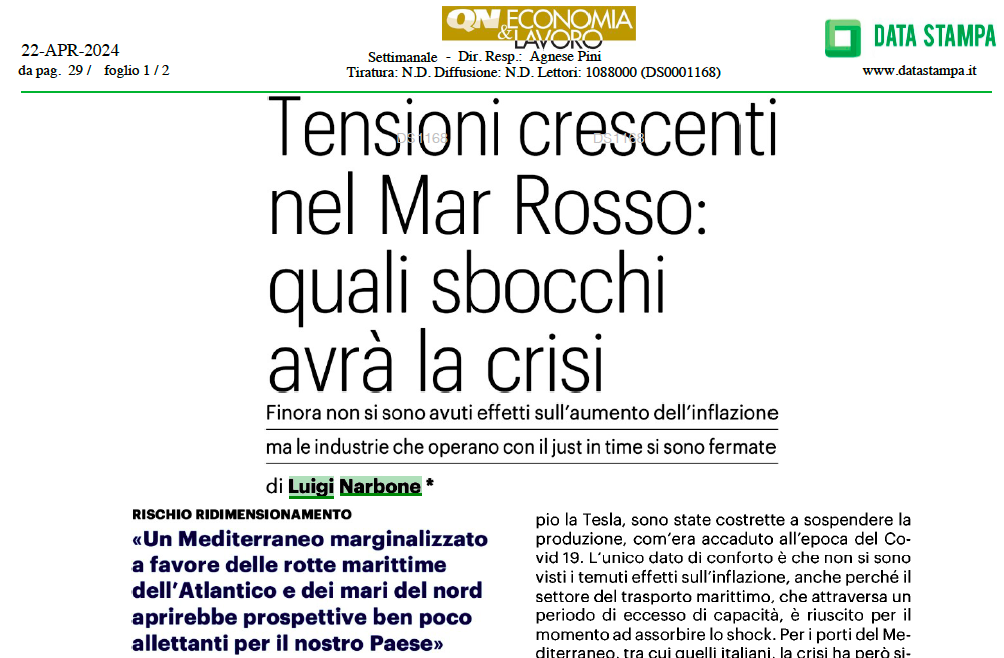
Economia & Lavoro
22 April 2024
Luigi Narbone analyses the economic dimension of the current tensions in the Red Sea.
In an article for the “Economia & Lavoro” supplement of the Quotidiano Nazionale, our director, Prof. Luigi Narbone analyses the economic dimension of the current tensions in the Red Sea. He discusses how the escalating crisis could have a major impact on countries bordering the wider Mediterranean and challenge the region’s role in the global economy.
Prof. Narbone outlined that, while the Red Sea crisis has not yet caused a significant rise in commodity prices or a slowdown in world trade, the damage caused to maritime traffic in this vital artery is important. More than 50% of merchant vessels continue to be redirected towards Cape of Good Hope, adding cost and time to the shipping lanes that connect Europe and Asia. In the first weeks, these disruptions have forced companies whose production model is based on “just in time” to suspend activities. Significant has also been the impact on the Suez Canal which provides 2% of GDP to Egypt.
The ongoing naval missions in the Red Sea, while useful in mitigating the risks, have not succeeded in stopping the Houthi threat, and it remains to be seen if and when they will restore normality. Moreover, the possible escalation of the Israeli-Iranian conflict would probably increase Houthi attacks in the Red Sea, posing significant threats to the Mediterranean and the global economy economies, Prof Narbone also mentions the risk of possible chronicisation of attacks in the Red Sea – even after the Gaza War and the current conflict in the Middle East ends – which could have a major impact on Europe, not only disrupting trade and commercial routes, but also affecting the geo-economic role of the Mediterranean.
Prof. Narbone, therefore, called on European diplomacy to make an intensive and far-sighted effort to achieve lasting peace and stability in the region.
The article is available in Italian.
